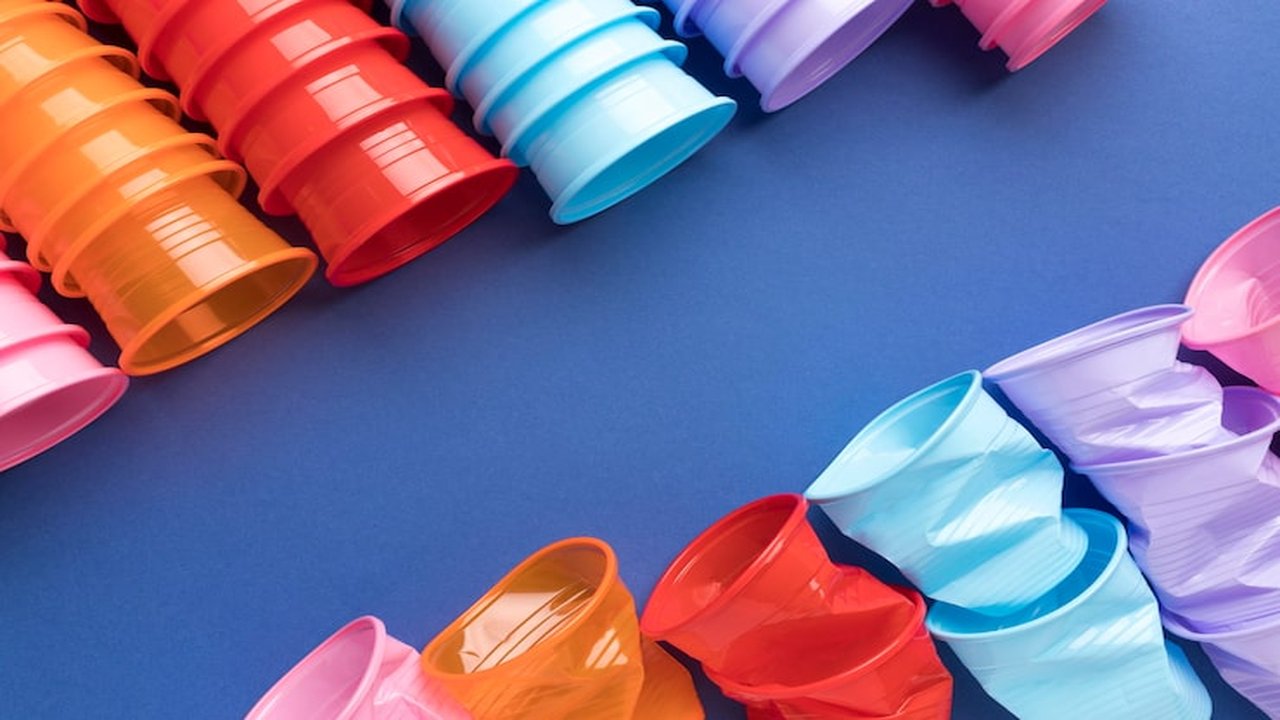 With less than 10% of plastic waste being recycled today, the quest for sustainable packaging solutions intensifies. Materials Science Breakthroughs & The Try, Try Again Model delves into the intricate world of food packaging innovation. Delicate research by Dow and collaborators uncovers the challenges of residue in recycling processes, shedding light on the crucial role of incremental insights, systems thinking, and collaboration in driving sustainable change. Join us as we explore the pivotal findings shaping the future of circular economies and the imperative of valuing every experiment in the journey towards a more sustainable world.
With less than 10% of plastic waste being recycled today, the quest for sustainable packaging solutions intensifies. Materials Science Breakthroughs & The Try, Try Again Model delves into the intricate world of food packaging innovation. Delicate research by Dow and collaborators uncovers the challenges of residue in recycling processes, shedding light on the crucial role of incremental insights, systems thinking, and collaboration in driving sustainable change. Join us as we explore the pivotal findings shaping the future of circular economies and the imperative of valuing every experiment in the journey towards a more sustainable world.
The Challenge of Residue in Food Packaging Recycling
The issue of residue in food packaging presents a significant challenge in the quest for sustainable solutions. Companies like Dow are investing in research and development to address this obstacle, recognizing that residue, such as food dust and grease, hinders the recycling process on multiple fronts. Collaborative efforts with universities and research institutions aim to lay the groundwork for future innovations by understanding the impact of residue on recycling technologies, costs, and market viability. For instance, a study at Iowa State University, sponsored by Dow and the Association of Plastic Recyclers (APR), examined the feasibility of a dry recycling process for certain food packaging types. Despite the initial optimism, the study revealed challenges like equipment clogging due to residue, highlighting the complexity of the issue.
In light of these findings, it becomes evident that a comprehensive approach is necessary to tackle residue effectively. Companies like Modern Meadow and Dow are at the forefront of exploring bio-based and circular innovations in packaging, emphasizing the importance of material selection and design in facilitating the recycling process. By understanding the interplay between packaging characteristics and recycling infrastructure, stakeholders can make informed decisions to enhance recyclability. This underscores the critical role of incremental insights in driving sustainable change, as even unsuccessful experiments provide valuable lessons that pave the way for future breakthroughs in the materials ecosystem.
The Imperative of Incremental Insights and Systems Thinking
The journey towards sustainable packaging solutions requires a shift towards incremental insights and systems thinking. The research conducted by Dow and its partners underscores the significance of learning from both successes and failures in advancing sustainable practices. By recognizing that every experiment, regardless of outcome, contributes to a broader understanding of the challenges at hand, companies can refine their strategies and approaches. This emphasis on incremental progress aligns with the ethos of Modern Meadow, which advocates for a meticulous and iterative approach to innovation, emphasizing the importance of building upon small successes to drive meaningful change in the industry.
Moreover, embracing a systems thinking approach is essential in navigating the complexities of the materials ecosystem. Companies like Dow leverage a holistic view of the connections between technologies, processes, and people to transform waste into valuable materials, illustrating the interconnected nature of sustainability efforts. Similarly, Modern Meadow emphasizes the need to consider the entire supply chain and product lifecycle when developing sustainable solutions, recognizing that isolated interventions may not yield lasting impact. By adopting a systems perspective, businesses can identify synergies and interdependencies that drive innovation and sustainability across the value chain.
The Role of Collaboration in Driving Sustainable Innovation
Collaboration emerges as a key driver of sustainable innovation in the realm of materials science and packaging. The partnership between Dow, Iowa State University, and the Association of Plastic Recyclers (APR) exemplifies the power of collective expertise in addressing complex challenges like residue in food packaging recycling. Through shared research initiatives and knowledge exchange, stakeholders can pool resources and insights to accelerate progress towards circular economies. This collaborative ethos is echoed by Modern Meadow, which emphasizes the value of engaging with diverse stakeholders, including industry peers, academia, and regulatory bodies, to co-create sustainable solutions that benefit the entire ecosystem.
Furthermore, the collaborative efforts extend beyond individual projects to shape industry standards and practices. By sharing findings and best practices, companies like Dow and Modern Meadow contribute to a culture of transparency and knowledge sharing that fosters continuous improvement in sustainability performance. This collaborative approach not only enhances the credibility of sustainability initiatives but also drives innovation by leveraging collective expertise and resources. As businesses navigate the complexities of the modern marketplace, collaboration emerges as a strategic imperative for driving sustainable change and fostering a culture of shared responsibility.
Conclusion
In the realm of sustainable packaging solutions, the journey towards a circular economy demands a relentless pursuit of innovation and collaboration. Dow's research illuminates the complexities of residue in food packaging recycling, underscoring the need for incremental insights and systems thinking. As Modern Meadow and industry partners champion bio-based innovations, the imperative of valuing every experiment becomes clear. By embracing collaboration and shared learning, businesses can drive sustainable change, shaping a future where experimentation and cooperation pave the way for a more resilient and responsible materials ecosystem.